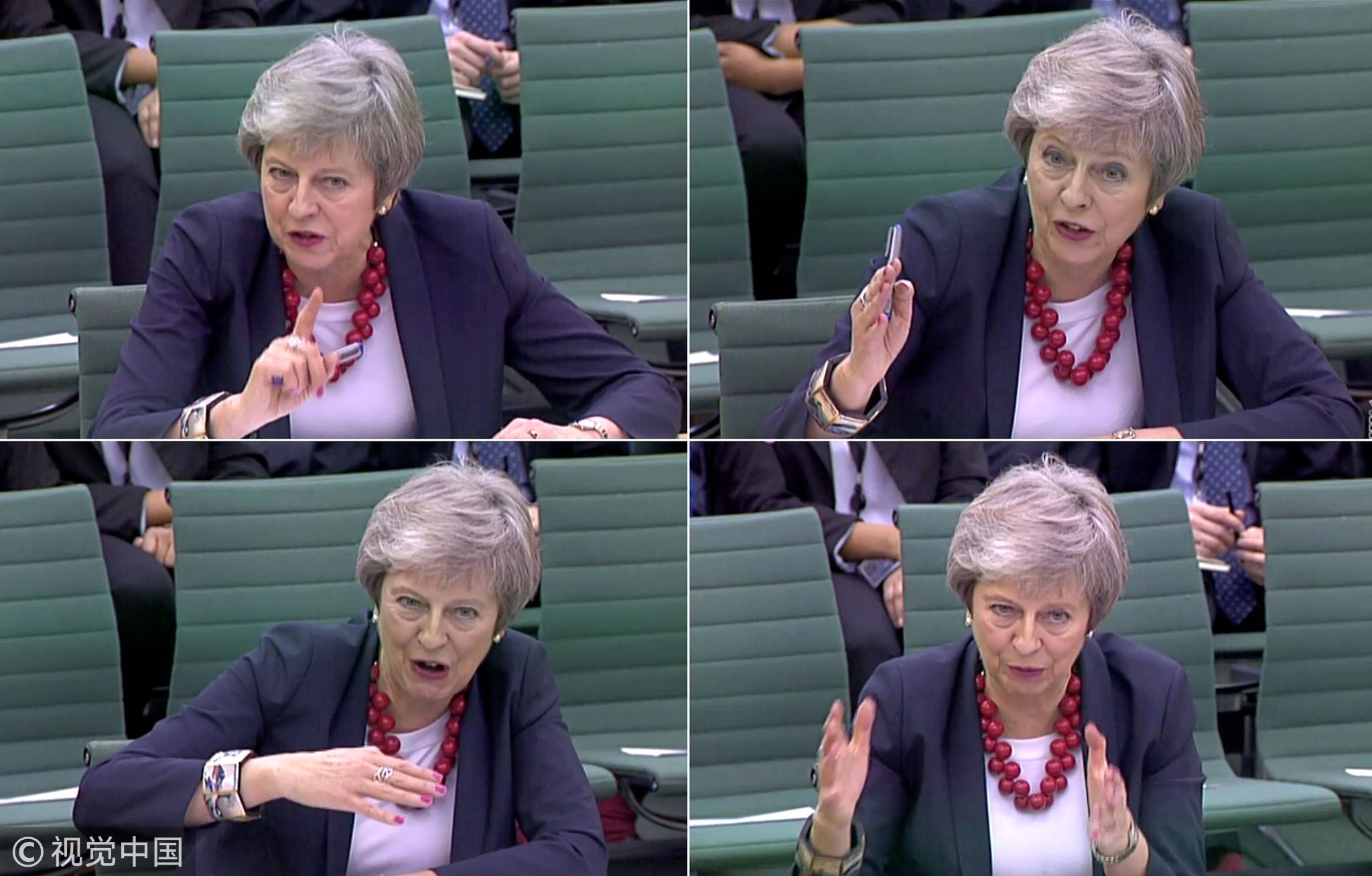
Politics
17:42, 04-Dec-2018
EU adviser: UK can exit Brexit as May begins parliament quest
Updated
16:50, 07-Dec-2018
CGTN
00:38

The European Court of Justice's advocate general said on Tuesday Britain has the right to withdraw its Brexit notice from the European Union unilaterally, opening a new front in a battle over Prime Minister Theresa May's plans to leave the bloc, which could be rejected in parliament next week.
The advice emboldened supporters of EU membership in Britain's parliament on the first of five days of debate on May's plans to keep close economic ties after leaving in March.
The advocate general suggested to some lawmakers that revoking the “Article 50” divorce notice was an option.

Britain's Prime Minister Theresa May answers questions about her Brexit agenda by British MP's at a Parliamentary liaison committee meeting in London, November 29, 2018. /VCG Photo
Britain's Prime Minister Theresa May answers questions about her Brexit agenda by British MP's at a Parliamentary liaison committee meeting in London, November 29, 2018. /VCG Photo
“Advocate General (Manuel) Campos Sanchez-Bordona proposes that the Court of Justice should declare that Article 50... allows the unilateral revocation of the notification of the intention to withdraw from the EU,” the ECJ, the bloc's highest court, said.
“That possibility continues to exist until such time as the withdrawal agreement is formally concluded,” it said in a statement.
But May has no intention of revoking the notice, her spokesman said, despite facing a daunting struggle to secure parliament's approval in the key vote on December 11 after her plan was criticized by Brexit supporters and opponents alike.
Read more:
“It does nothing in any event to change the clear position of the government that Article 50 is not going to be revoked,” the prime minister's spokesman told reporters.
“The British people want us to get on with a deal that honors the referendum and allows us to come together again as a country, whichever way we voted,” May will tell lawmakers on Tuesday, according to excerpts of her speech.
“This is the deal that delivers for the British people.”
May said if lawmakers do not back her deal, they could open the door for Britain to fall out of the EU without measures to soften the transition, or that Brexit might not happen.
Crucial vote
Britain is due to leave the bloc on March 29, 2019, and May has agreed on an exit pact and an outline of the future EU-British ties with the other 27 EU states. Thus the crucial December 11 vote is likely to decide the shape of Brexit.
If, against the odds, May wins, Britain will leave the EU on March 29 on the terms she negotiated with Brussels, its biggest shift in trade and foreign policy for more than 40 years.
If she loses, May could call for a second vote on the deal. But defeat would increase the chances of a “no-deal” exit, which could mean chaos for Britain's economy and businesses, and put May under fierce pressure to resign.
May's spokesman said the cabinet had discussed the motion on Tuesday but maintained that ministers must be able to obtain candid legal advice “without fear that it will be immediately published”.
(With inputs from Reuters)

SITEMAP
Copyright © 2018 CGTN. Beijing ICP prepared NO.16065310-3
Copyright © 2018 CGTN. Beijing ICP prepared NO.16065310-3